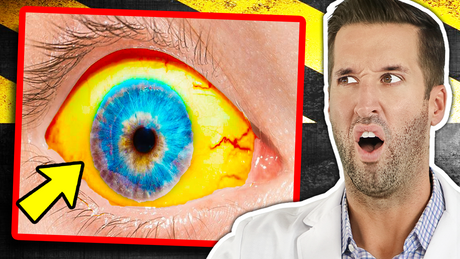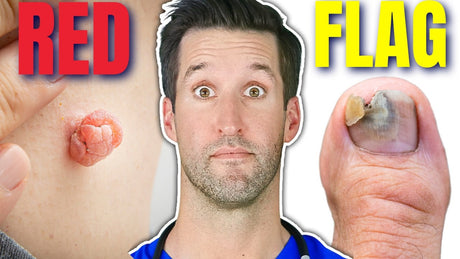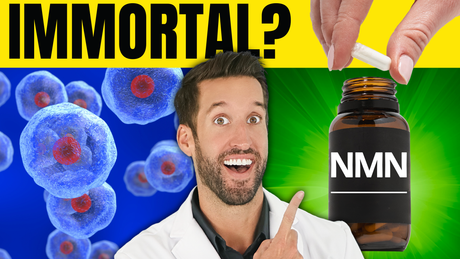If you've been feeling overwhelmed or not quite yourself lately, you might be experiencing stress. Understanding the warning signs can help you address and manage stress more effectively. Today, we're diving into the "7 Warning Signs of Stress" and sharing some quick tips to help you manage it better.
1. Constant Fatigue
Constant fatigue despite getting enough sleep can be a sign of stress affecting your body. If you’re always feeling tired, it might be time to evaluate your stress levels and consider stress-reducing strategies. Chronic stress can lead to adrenal fatigue, affecting your energy levels and overall health .
2. Difficulty Concentrating
Trouble focusing on tasks at work or home is a classic sign that your mental bandwidth is being taxed by stress. If you find yourself struggling to concentrate, it may be time to address the underlying stressors. Studies have shown that stress can impair cognitive functions, including memory and attention .
3. Changes in Appetite
Changes in appetite, whether eating too much or too little, can also be a stress response. Stress can disrupt your normal eating patterns, leading to fluctuations in appetite. Research indicates that stress hormones like cortisol can affect appetite and eating behaviors .
4. Increased Irritability
Feeling more irritable or on edge than usual is a common symptom of stress. If you notice that you’re snapping at minor inconveniences, stress might be manifesting in your mood. Stress can lead to changes in emotional regulation, making you more prone to irritability and mood swings .
5. Sleep Disturbances
Trouble sleeping, whether it's difficulty falling asleep or waking up often, can be a sign that stress is keeping you awake. Poor sleep can exacerbate stress, creating a vicious cycle. Stress and sleep are closely linked, with stress often leading to insomnia and other sleep disorders .
6. Physical Symptoms
Physical symptoms such as headaches, muscle tension, or an upset stomach can indicate that your body is dealing with too much stress. Pay attention to these signals as they can provide clues about your stress levels. Stress can manifest physically, leading to symptoms like tension headaches and gastrointestinal issues .
7. Withdrawal from Social Activities
If you're pulling away from friends or activities you usually enjoy, it can be a major red flag for stress. Social withdrawal can worsen stress and negatively impact your mental health. Social isolation is a common response to stress and can lead to further emotional difficulties .
The Impact of Prolonged Stress
Before we dive into our quick relief tips, let's talk briefly about why managing stress is so crucial. Prolonged stress isn't just uncomfortable—it can have serious health implications. Chronic stress can lead to a variety of health problems, including heart disease, high blood pressure, diabetes, depression, and anxiety. It can weaken your immune system, making you more susceptible to illnesses and affecting your body’s ability to recover .
Prolonged stress also impacts your mental health, contributing to issues like burnout and emotional exhaustion, which can affect every aspect of your life—from work performance to personal relationships . That’s why it’s so important to take steps to manage stress effectively and seek support when needed. With the right tools and approaches, you can protect your health and improve your overall well-being.
Quick Stress Relief Tips
Deep Breathing Exercises
First, try deep breathing exercises or a short meditation—just five minutes can make a big difference. Meditation and breathing exercises are highly beneficial for reducing stress as they promote relaxation by activating the body's parasympathetic nervous system, which helps to slow the heart rate and lower blood pressure . A study published in Psychosomatic Medicine found that mindfulness meditation can significantly reduce cortisol levels, the stress hormone, in the body, helping to alleviate stress and improve overall health .
Stay Active
Stay active! A quick walk or any form of exercise can boost your mood and clear your mind. Exercise naturally boosts endorphins, the brain's feel-good neurotransmitters, which can improve mood and decrease feelings of stress. Research highlighted in the American Journal of Preventive Medicine demonstrates that regular moderate exercise, like walking, significantly lowers symptoms of depression and anxiety, which are often linked to elevated stress levels .
Maintain a Balanced Diet
Maintaining a balanced diet helps. Foods rich in magnesium and omega-3 fatty acids are great for reducing stress because they stabilize blood sugar levels, reduce inflammation, and enhance brain function. According to a study published in the Journal of Nutritional Biochemistry, diets rich in antioxidants and omega-3 fatty acids can mitigate the physiological impacts of stress on the body, helping to improve mood and decrease the risk of chronic stress-related diseases .
Consider Chillax Supplement
For those times when you need a little extra help, consider Chillax, a natural supplement designed to support your body’s response to life’s occasional stresses. Chillax is packed with beneficial ingredients like Magnesium, Saffron, L-Theanine, and others to help keep you balanced and calm.
Why choose Chillax? It’s doctor and nutritionist formulated to help you navigate life’s challenges with a sense of tranquility, letting you focus on what truly matters. If you’re starting to feel that inner tension, just reach for 2 capsules, and repeat up to 3 times a day or as needed.
Conclusion:
Managing stress is about making small changes for a big impact. By recognizing the warning signs of stress and implementing effective stress-relief techniques, you can protect your health and improve your overall well-being. Don't forget to prioritize self-care and seek support when needed.
For more tips on leading a healthier, happier life, be sure to like, subscribe, and turn on notifications. Take care and stay calm!
---
Studies:- Mayo Clinic Staff. (2020). Stress symptoms: Effects on your body and behavior. Mayo Clinic. Retrieved from Mayo Clinic
- McEwen, B. S., & Morrison, J. H. (2013). The brain on stress: vulnerability and plasticity of the prefrontal cortex over the life course. Neuron, 79(1), 16-29. doi:10.1016/j.neuron.2013.06.028
- Epel, E., Lapidus, R., McEwen, B., & Brownell, K. (2001). Stress may add bite to appetite in women: a laboratory study of stress-induced cortisol and eating behavior. Psychoneuroendocrinology, 26(1), 37-49. doi:10.1016/S0306-4530(00)00035-4
- Sinha, R. (2008). Chronic stress, drug use, and vulnerability to addiction. Annals of the New York Academy of Sciences, 1141(1), 105-130. doi:10.1196/annals.1441.030
- Meerlo, P., Sgoifo, A., & Suchecki, D. (2008). Restricted and disrupted sleep: effects on autonomic function, neuroendocrine stress systems and stress responsivity. Sleep Medicine Reviews, 12(3), 197-210. doi:10.1016/j.smrv.2007.07.007
- Thoits, P. A. (2010). Stress and health: Major findings and policy implications. Journal of Health and Social Behavior, 51(S), S41-S53. doi:10.1177/0022146510383499
- Cacioppo, J. T., Hawkley, L. C., & Thisted, R. A. (2010). Perceived social isolation makes me sad: 5-year cross-lagged analyses of loneliness and depressive symptomatology in the Chicago Health, Aging, and Social Relations Study. Psychology and Aging, 25(2), 453-463. doi:10.1037/a0017216
- Cohen, S., Janicki-Deverts, D., & Miller, G. E. (2007). Psychological stress and disease. JAMA, 298(14), 1685-1687. doi:10.1001/jama.298.14.1685
- Maslach, C., Schaufeli, W. B., & Leiter, M. P. (2001). Job burnout. Annual Review of Psychology, 52(1), 397-422. doi:10.1146/annurev.psych.52.1.397
- Jerath, R., Crawford, M. W., Barnes, V. A., & Harden, K. (2015). Self-regulation of breathing as a primary treatment for anxiety. Applied Psychophysiology and Biofeedback, 40(2), 107-115. doi:10.1007/s10484-015-9279-8
- Creswell, J. D., Pacilio, L. E., Lindsay, E. K., & Brown, K. W. (2014). Brief mindfulness meditation training alters psychological and neuroendocrine responses to social evaluative stress. Psychoneuroendocrinology, 44, 1-12. doi:10.1016/j.psyneuen.2014.02.007
- Paluska, S. A., & Schwenk, T. L. (2000). Physical activity and mental health: current concepts. Sports Medicine, 29(3), 167-180. doi:10.2165/00007256-200029030-00003
All information on the Life Happns website is for informational purposes only, and is not intended to be used for medical advice, diagnosis, or treatment. Always seek the advice of your physician or other qualified health provider with any questions you may have regarding a medical condition or before starting any new supplement or health regimen.








